The Atlantic Provinces Harness Racing Commission has learned that additional horses stabled at at Red Shores Racetrack & Casino at the Charlottetown Driving Park have been exposed to strangles bacteria, as confirmed by enhanced testing.
At a meeting on Tuesday (Feb. 23) that included the Atlantic Veterinary College, Charlottetown Veterinary Clinic, Prince Edward Island Harness Racing Industry Association, Atlantic Provinces Harness Racing Commission and Red Shores, it was agreed that immediate and strict protocol will be implemented on the grounds of the Red Shores Charlottetown property.
Effective 12:01 a.m. Thursday (Feb. 25), The Red Shores Charlottetown property, including all barns and the ship-in area, will implement a track-wide lockdown with no horses being allowed to ship on to the grounds until further notice. Horses may only leave the premises if they have a clearance letter from their veterinarian of a negative test taken within seven days prior to their departure.
No horses will be allowed to ship in for training until further notice.
Each trainer on site will be contacted to identify essential workers for their barn; only these people will be allowed on site.
There must be strict limitation of any movement between barns, and mandatory bio-security protocol is being enforced. Under this protocol, foot baths, brushes and disinfectant have been supplied to each barn.
These strict measures have been introduced for the best interests of the entire racing community. With proper biosecurity measures being strictly followed, the hope is to return to normal practices sooner than later.
As always, horsepeople are reminded to monitor their horses' health daily by taking temperatures twice a day and logging the results. Horsepeople should consult their veterinarians if any concerns arise.
Stangles case in Quebec
The MAPAQ Equine Network has informed that a case of equine herpesvirus myeloencephalopathy (EHV-1) nervous form was confirmed in the Outaouais region on Feb. 12.
On Feb. 1, the horse started with a cough and hyperthermia, both mild. Within hours, he developed depression, partial anorexia, ataxia in all four limbs, and a stoppage of urination and defecation followed by lateral recumbency. Due to his very rapid degradation, he was euthanized on Feb. 3. Molecular analyzes of nasal secretions have identified the presence of EHV-1. The date of the last herpesvirus vaccine is not known.
Six other horses in the same stable show fevers, but show no other clinical signs at this time. Prevention and control measures have been put in place by the practicing veterinarian and the owner of the stable to control the disease and prevent contamination of other horses in this stable and other stables.

 USA
USA Canada
Canada Australia
Australia New Zealand
New Zealand Europe
Europe UK / IRE
UK / IRE


